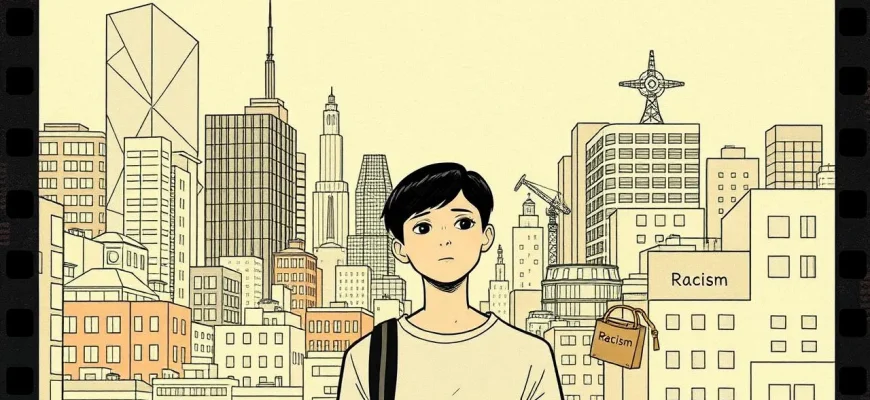Dive into the world of cinema where stories not only entertain but also enlighten us about the pressing social issues of our time. This curated list of 10 drama films tackles themes from poverty and inequality to racism and mental health, providing a profound look at the human condition. These films are not just stories; they are mirrors reflecting the complexities of society, encouraging viewers to reflect, empathize, and perhaps even act.

The Color Purple (1985)
Description: This adaptation of Alice Walker's novel tells the story of Celie, an African-American woman living in rural Georgia, dealing with racism, sexism, and abuse.
Fact: The film was nominated for 11 Academy Awards but did not win any, leading to some controversy. Whoopi Goldberg made her film debut in this movie.
 Watch Now
Watch Now 
A Beautiful Mind (2001)
Description: This biographical drama delves into the life of John Nash, a mathematical genius who battles schizophrenia, shedding light on mental health issues and the stigma surrounding them.
Fact: Russell Crowe was nominated for an Academy Award for his portrayal of Nash. The film's title is a reference to Nash's book, "A Beautiful Mind."
 Watch Now
Watch Now 
The Pursuit of Happyness (2006)
Description: This film captures the struggle of Chris Gardner, a homeless salesman, as he strives to provide a better life for his son, highlighting issues of poverty, perseverance, and the American Dream.
Fact: Will Smith and his son Jaden played father and son in real life, adding authenticity to their on-screen relationship. The title intentionally misspells "Happiness" to reflect the sign in the film.
 Watch Now
Watch Now 
Dallas Buyers Club (2013)
Description: This film tells the true story of Ron Woodroof, who smuggled unapproved pharmaceutical drugs into the U.S. to help AIDS patients, focusing on the AIDS crisis and healthcare access.
Fact: Matthew McConaughey and Jared Leto both won Academy Awards for their roles. McConaughey lost 47 pounds to portray Woodroof.
 Watch Now
Watch Now 
The Soloist (2009)
Description: Based on a true story, this film explores the relationship between a journalist and a homeless, mentally ill musician, highlighting issues of homelessness and mental health.
Fact: Jamie Foxx learned to play the cello for his role. The film was inspired by Steve Lopez's columns in the Los Angeles Times.
 Watch Now
Watch Now 
The Blind Side (2009)
Description: This heartwarming story explores themes of race, class, and family through the true story of Michael Oher, a homeless African-American teenager taken in by a wealthy white family.
Fact: The film is based on the book "The Blind Side: Evolution of a Game" by Michael Lewis. Sandra Bullock won an Academy Award for Best Actress for her role.
 Watch Now
Watch Now 
Precious (2009)
Description: A raw and emotional journey through the life of an illiterate, obese, and pregnant teenager, Precious, as she navigates through abuse, poverty, and racism to find her voice.
Fact: The film was adapted from the novel "Push" by Sapphire. Gabourey Sidibe, who played Precious, was a first-time actress discovered in an open casting call.
 Watch Now
Watch Now 
The Help (2011)
Description: Set in the 1960s, this film explores the lives of African-American maids working in white households in Mississippi, addressing issues of racism, segregation, and civil rights.
Fact: The film was adapted from Kathryn Stockett's novel of the same name. It was nominated for four Academy Awards, winning Best Supporting Actress for Octavia Spencer.
 Watch Now
Watch Now 
12 Years a Slave (2013)
Description: A harrowing depiction of Solomon Northup's life, a free black man who was kidnapped and sold into slavery, highlighting the brutality of slavery and the fight for freedom.
Fact: The film was the first by a black director (Steve McQueen) to win the Academy Award for Best Picture. It was also the first film since 1979 to win Best Picture without any acting nominations.
 Watch Now
Watch Now 
The Florida Project (2017)
Description: Through the eyes of a six-year-old girl, this film examines the harsh realities of poverty and the innocence of childhood in the shadow of Disney World.
Fact: The film was shot on location in a real motel, giving it an authentic feel. It was also critically acclaimed for its depiction of poverty.
 Watch Now
Watch Now 








